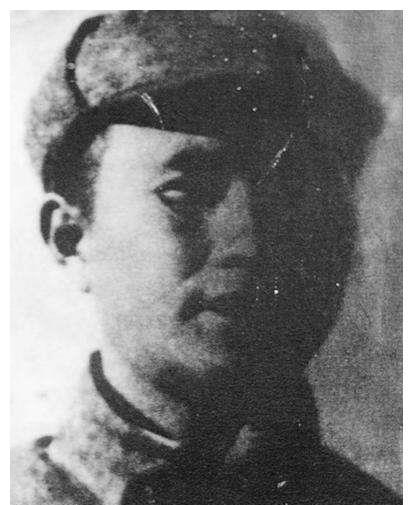When it comes to the senior generals who died in our army during the anti-Japanese period, the average person can think of Zuo Quan of the Eighth Route Army and Peng Xuefeng of the New Fourth Army. But in fact, there was another senior general of our army who died during the anti-Japanese war, and he was Su Jingcheng, who was then the director of the political department of the 386th Brigade of the 129th Division of the Eighth Route Army.

The well-known 386 Brigade can be said to be full of talented people; brigade commander Chen Geng was the later founding general; political commissar Wang Xinting, deputy brigade commander Chen Zaidao, and chief of staff Li Jukui were all later founding generals; deputy regimental commander Wang Jinshan and regimental chief of staff Sun Jixian were also well-known fierce generals of our army. Therefore, Su Jingcheng, who can serve as the director of the political department of the 386 brigade, is definitely not simple, and if he can live to 1955, he should also be a general.
Su Jingcheng's family was poor, but he still finished primary and secondary school and was admitted to Xiamen Academy of Fine Arts. During his time in school, Su Jingcheng read many progressive books by Lu Xun, and under the influence of these books, he germinated many revolutionary ideas. Just when the Red Army conquered Zhangzhou in Fujian in 1932, Su Jingcheng resolutely defected to the Red Army.
Because Su Jingcheng was cultured and his speech ability was very comparable, he was assigned to the propaganda team of the Political Department of the Red First Army as a propagandist, and was soon promoted to captain.
The most famous story about Su Jingcheng is that he touched a division of the Northeast Army with a few words. It was after the Red Army arrived in northern Shaanxi that the Northeast Army received chiang kai-shek's orders to continue encircling and suppressing the Red Army. Although the Northeast Army knew that Chiang Kai-shek wanted the Red Army and the Northeast Army to wear and tear each other out, they could not resist and could only continue to fight the Red Army with their scalps.
In August 1936, the 6th Cavalry Division of the Northeast Army He Zhuguo engaged our army, and the Northeast Army was defeated by our army and was quickly annihilated by four companies. However, our army did not want to provoke the Northeast Army, so it withdrew from the battle, and the two sides entered a state of confrontation, and Su Jingcheng went to negotiate with the enemy as a negotiator.
Su Jingcheng led the fighters to shout: Stop the civil war, unite, and turn the gun on Japanese imperialism! Then he led the soldiers to sing "On the Songhua River", which was quite embattled for the Northeast Army, and many soldiers of the Northeast Army shed tears. The Northeast Army, which was moved, began to send people to contact our army. After that, Su Jingcheng went to the headquarters of the 6th Cavalry Division of the Northeast Army alone, and finally the two sides secretly reached an armistice agreement.
After the outbreak of the War of Resistance Against Japanese Aggression, Su Jingcheng was the political commissar of the 686th Regiment of the 115th Division of the Eighth Route Army, assisting the later founding general Li Tianyou, who participated in the famous PingxingGuan Victory. Soon after, Su Jingcheng was transferred to the 386th Brigade of the 129th Division as the director of the Political Department, and was active in the southern foothills of the Taihang Mountains, making outstanding contributions to the anti-Japanese resistance.
Unfortunately, in January 1941, the Japanese army gathered more than 6,000 people to launch an attack on the brigade headquarters of the 386th Brigade, but our army only had one battalion of guards, and finally Su Jingcheng led the Japanese army to a cliff in order to protect Chen Geng and the quartermaster depot, and finally died heroically, only 29 years old.